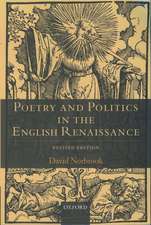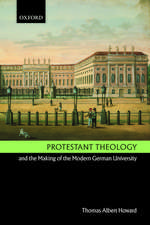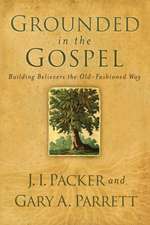The Waldenses, 1170-1530: Between a Religious Order and a Church: Variorum Collected Studies
Autor Peter Billeren Limba Engleză Hardback – 14 mar 2001
Din seria Variorum Collected Studies
-
 Preț: 313.38 lei
Preț: 313.38 lei -
 Preț: 311.41 lei
Preț: 311.41 lei -
 Preț: 299.55 lei
Preț: 299.55 lei -
 Preț: 325.68 lei
Preț: 325.68 lei -
 Preț: 406.12 lei
Preț: 406.12 lei -
 Preț: 311.18 lei
Preț: 311.18 lei -
 Preț: 325.31 lei
Preț: 325.31 lei -
 Preț: 396.01 lei
Preț: 396.01 lei - 9%
 Preț: 1039.89 lei
Preț: 1039.89 lei -
 Preț: 266.20 lei
Preț: 266.20 lei -
 Preț: 343.34 lei
Preț: 343.34 lei - 9%
 Preț: 938.10 lei
Preț: 938.10 lei -
 Preț: 351.48 lei
Preț: 351.48 lei - 9%
 Preț: 938.86 lei
Preț: 938.86 lei -
 Preț: 335.37 lei
Preț: 335.37 lei - 9%
 Preț: 937.14 lei
Preț: 937.14 lei -
 Preț: 351.42 lei
Preț: 351.42 lei -
 Preț: 320.00 lei
Preț: 320.00 lei - 38%
 Preț: 766.84 lei
Preț: 766.84 lei - 23%
 Preț: 315.48 lei
Preț: 315.48 lei - 36%
 Preț: 740.06 lei
Preț: 740.06 lei - 34%
 Preț: 764.20 lei
Preț: 764.20 lei - 39%
 Preț: 684.75 lei
Preț: 684.75 lei - 29%
 Preț: 247.40 lei
Preț: 247.40 lei - 37%
 Preț: 488.89 lei
Preț: 488.89 lei - 38%
 Preț: 766.91 lei
Preț: 766.91 lei - 34%
 Preț: 769.51 lei
Preț: 769.51 lei - 38%
 Preț: 769.85 lei
Preț: 769.85 lei - 36%
 Preț: 823.43 lei
Preț: 823.43 lei - 25%
 Preț: 225.28 lei
Preț: 225.28 lei - 25%
 Preț: 225.54 lei
Preț: 225.54 lei - 34%
 Preț: 767.07 lei
Preț: 767.07 lei - 34%
 Preț: 764.20 lei
Preț: 764.20 lei - 34%
 Preț: 736.38 lei
Preț: 736.38 lei - 34%
 Preț: 738.43 lei
Preț: 738.43 lei - 25%
 Preț: 226.52 lei
Preț: 226.52 lei - 33%
 Preț: 491.66 lei
Preț: 491.66 lei - 34%
 Preț: 485.78 lei
Preț: 485.78 lei - 34%
 Preț: 485.78 lei
Preț: 485.78 lei - 38%
 Preț: 766.34 lei
Preț: 766.34 lei - 36%
 Preț: 739.17 lei
Preț: 739.17 lei - 31%
 Preț: 473.94 lei
Preț: 473.94 lei - 18%
 Preț: 843.63 lei
Preț: 843.63 lei - 38%
 Preț: 774.91 lei
Preț: 774.91 lei - 34%
 Preț: 764.20 lei
Preț: 764.20 lei - 50%
 Preț: 488.81 lei
Preț: 488.81 lei - 36%
 Preț: 488.49 lei
Preț: 488.49 lei - 34%
 Preț: 769.10 lei
Preț: 769.10 lei - 38%
 Preț: 766.99 lei
Preț: 766.99 lei
Preț: 769.92 lei
Preț vechi: 1242.74 lei
-38% Nou
Puncte Express: 1155
Preț estimativ în valută:
147.32€ • 153.83$ • 121.65£
147.32€ • 153.83$ • 121.65£
Carte tipărită la comandă
Livrare economică 15-29 aprilie
Preluare comenzi: 021 569.72.76
Specificații
ISBN-13: 9780860787983
ISBN-10: 0860787982
Pagini: 352
Dimensiuni: 150 x 224 x 31 mm
Greutate: 0.77 kg
Ediția:1
Editura: Taylor & Francis
Colecția Routledge
Seria Variorum Collected Studies
Locul publicării:Oxford, United Kingdom
ISBN-10: 0860787982
Pagini: 352
Dimensiuni: 150 x 224 x 31 mm
Greutate: 0.77 kg
Ediția:1
Editura: Taylor & Francis
Colecția Routledge
Seria Variorum Collected Studies
Locul publicării:Oxford, United Kingdom
Public țintă
Academic and PostgraduateCuprins
Contents: Introduction; Historiography: The Waldenses in the 14th and 15th centuries: the current state of knowledge; The historiography of medieval heresy in the United States of America and Great Britain, 1945-1992; The medieval waldenses: Curate infirmos: the medieval Waldensian practice of medicine; Multum ieiunantes et se castigantes: medieval Waldensian asceticism; Medieval Waldensian abhorrence of killing pre-c.1400; Poverty and money: Thesaurus absconditus: the treasure of the medieval Waldensians; German money and medieval heresy: the wealth of the German Waldenses; The Waldensian sisters: The preaching of the Waldensian Sisters; Waldensian culture and writing: The oral and the written: the case of the Alpine Waldensians; The Topos and reality of the heretic as illitteratus; Medieval Waldensians' construction of the past; The Liber Electorum; Inquisitors’ texts: The De vita et actibus pauperum de Lugduno; The 1391 lists of Waldensian magistri: three further manuscripts; The anti-Waldensian treatise Cum dormirent homines of 1395 and its author; Waldenses in German-speaking areas in the later 14th century: the view of an inquisitor; Indexes.
Recenzii
'... a valuable selection... acute and always well based in evidence.' Huguenot Society Proceedings '... has much to offer the scholar of medieval religious history.' Calvin Theological Journal 'The book as a whole provides [...] a rather complete panorama of the waldensian movement in its maturity.' Revue Mabillon 'This quick overview of the discussed themes, shows the care with which Peter Biller has looked into the Waldenses' past. Reading the works gathered here confirms the renown he has achieved in his domain.' Revue d’Histoire Ecclésiastique
Descriere
The Waldenses, like the Franciscans, emerged from the apostolic movements within the Latin Church of the decades around 1200, but unlike the Franciscans they were driven underground. Not a full counter-Church, like the Cathar heretics, they formed a clandestine religious order, preaching to and hearing the confessions of their secret followers, and surviving until the Reformation. This volume begins by surveying modern historiography. Then, using both inquisition records from the Baltic to the Alps and the Waldenses' own books, the author deals with the asceticism of the Waldensian order, its practice of poverty and medicine, the culture of the Brothers and the preaching of the Waldensian Sisters, the way both used and mythicised history to support their position, and the composition of their followers. The final chapters examine their origins and authorship of the inquisitors' texts, and look through them to see how inquisitors viewed the Waldenses.
















